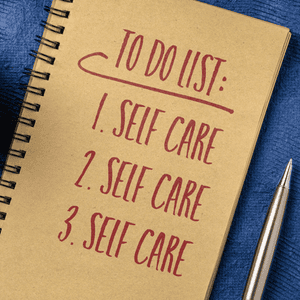You've likely heard the timeless advice to "trust your gut" countless times.
While your gut might not be a wise mystical sage sitting atop a mountain, spouting profound truths about the universe, it certainly speaks volumes in everyday situations, amidst the buzz of caffeine. But did you know each person's gut microbiome is unique, meaning solutions that work for one may not for another [1].
The gut, often dubbed our second brain, plays a crucial role in our overall well-being and helps us to navigate the choppy twists and turns that come our way. Within it reside trillions of microorganisms, collectively known as the gut microbiome, crucial for digestion, nutrient absorption, and immune function. However, as we age, our gut microbiome can undergo changes influenced by various factors like diet, medication, and lifestyle choices. Also, nutrient absorption becomes trickier with age, even with a nutritious diet, leading to nutrient deficiencies [2].
But fear not! There's still plenty we can do to keep our gut health thriving as we journey through life…
Keep stress levels low

Ronan Keating was right when he sang, “life is a rollercoaster, just gotta ride it”. The twists and turns life throws our way can leave us more than just dizzy.
The complex connection between the brain and the gut, known as the gut-brain axis, means that emotional stressors can trigger physical responses in the gastrointestinal system. When stressed, the body releases hormones like cortisol and adrenaline, which can disrupt the delicate balance of bacteria in the gut [3], of which there is over 1,000 different species residing in the gut microbiome, leading to upset an tummy such as bloating, cramping and diarrhoea, and even exasperate conditions such as irritable bowel syndrome (IBS) or inflammatory bowel disease (IBD).
During moments of fight or flight, our bodies prioritise survival over rest and repair. To nurture a low-stress lifestyle, and maintain a healthier mind and gut, ensure you make time for:
- Self-care - Maintaining a healthy diet, getting enough sleep, and setting boundaries can help recharge and rejuvenate both physically and mentally.
- Fun and engaging activities – Takes your mind away from stressful situations and negative thoughts and helps to release happy hormones such as serotonin.
- Exercise – Good for the mind and physical body. Increases mood, self-esteem, concentration, sleep, and overall well-being by releasing feel-good brain chemicals [4].
Stay hydrated

Ever been awkwardly stuck on a waterslide, waiting for that rush of water to push you forward? It's frustrating, right? Just like how your body needs water to keep things moving smoothly.
Your body works in the same way, as water helps the food to move through your stomach, intestines and finally your colon. From the moment food touches your lips, saliva, which consists mostly of water, initiates the breakdown of complex carbohydrates. If there is not enough water to move the food along through your digestive tract, the food can become trapped or slow down, resulting in constipation or bloating[5].
Aside from the obvious "drink more water”, you can tweak small things to spice up your hydration game. Adding fruit to your water is a refreshing and tasty way to jazz it up! Try slices of lemons, oranges, cucumber, strawberries, or even herbs. These simple additions not only make water more enjoyable but also add a burst of flavour.
Improve your sleep schedule

Many of us have been there—those restless nights where we find ourselves staring at the ceiling, attempting to count sheep just to catch one wink of sleep.
It can feel as though hours have passed by until our thoughts inevitably wander to that one painfully embarrassing moment ten years ago, and we suddenly wish that a stampede of real sheep would put us out of our misery. Unfortunately, it is not always as easy as putting your phone down a few hours before you get into bed or listening to 8 hours of white noise on Spotify.
The relationship between quality of sleep and gut health is a two-way street. When sleep suffers, stress hormone cortisol levels spike, potentially leading to a 'leaky gut' where food and toxins escape the intestine into the bloodstream, triggering inflammation, bloating, and stomach discomfort. To make matters worse, sleep deprivation often drives us toward unhealthy food choices or excessive caffeine, further disrupting gut balance and overall well-being.
Studies show that we should not eat within three hours of going to bed [6]. If you stay up too late, you’re more inclined to go rifling through your fridge for a midnight snack, which can disrupt your body's much-needed recovery time.
Prioritise a balanced diet

It’s easy to find ourselves wandering around Tesco and strolling through the same aisles again and again. A Sunday would not be complete without a roast dinner piled high with pigs in blankets, and ‘Taco Tuesday’ is a weekly ritual.
Our gut microbes are connoisseurs, craving diversity in their diet just like we do. They thrive on fibre, each catering to different bacterial tastes.
Incorporating fibre is key to nurturing gut diversity. Prebiotics, which can often be a source of fibre, have been show to promote the growth of beneficial bacteria. You can find them naturally in foods like whole grains, bananas, apples, onions, soybeans, garlic, and leeks. It can also be found in concentrated amounts through prebiotic supplements, such as Bimuno.
If you’re looking for that extra gut support, try Bimuno® Original, our high-in-fibre prebiotic supplement that has been scientifically proven to feed and stimulate the growth of good bacteria in the gut.
[1] https://www.ncbi.nlm.nih.gov/pmc/articles/PMC7043356/
[6] https://www.ncbi.nlm.nih.gov/pmc/articles/PMC7215804/
Related Articles








